General Info - FAQs
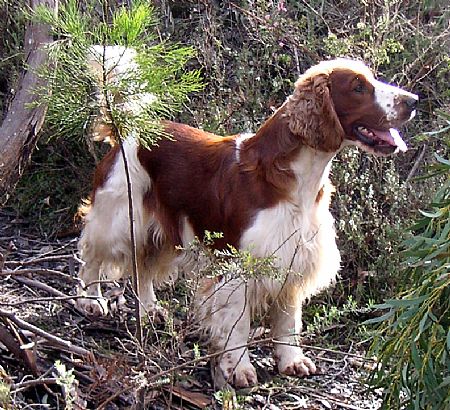
|
We have been involved in pure bred dogs since 1976, and breeding since 1985, starting out with Bullterriers. We have also owned and shown an American Cocker Spaniel, English Springer Spaniel and a Border Collie. We started with Hungarian Vizslas and Welsh Springer Spaniels in 1991, showing and breeding both with relative success.
We continue to breed Welsh Springers, aiming to breed sound, healthy puppies, true to type. All our breeding stock are hip & elbow scored. Our puppies are usually ready for their new homes by 8 - 9 weeks, by which time they will have had their temporary 6 or 8 week vaccination, have been vet checked, microchipped, wormed and having 2-3 feeds a day. Their pet pack will include some general information on the breed from numerous sources, health care and exercise, feeding and diet sheet, and all their relevent paperwork.
|
|
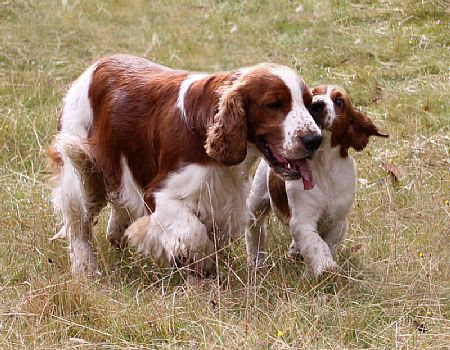 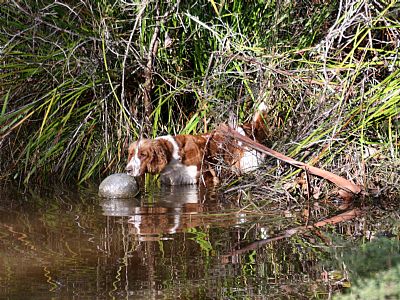 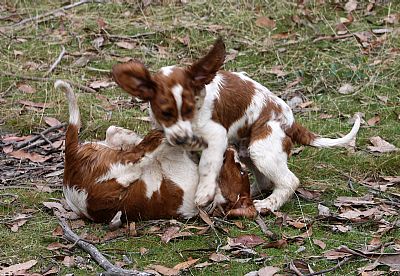
|
|
FAQ's
Male versus female puppy?
Personally we are drawn to a male's personality, however their are plenty who wouldn't go past a female, and as every dog has its own individual characteristics, it is possibly better to choose a puppy for its individual qualities.
Are they good with children?
Most Welshies are very good with children, but with young puppies and young children, naturally supervision will be required for the protection of both.
Desexing a female?
If we are honest, we desex our animals for our benefit and spaying females makes life so much easier. On rare occasions it is required for health reasons. We have had females who have had litters, females who have never been bred from, and desexed females. From our experience, they all mature mentally at a similar rate and their personality doesn't alter from any of the afore mentioned, desexed females are more prone to incontinence as they age as well as cancer.
Desexing a male?
We have noticed an increase in the number of vets who seem to be encouraging having the males desexed, however we have known desexed males that will still mate (even when desexed by 6 months), can still be dominating if not properly handled, and entire males that have lived to old age without any health problems, and again mentally no variation in personality. It may be true that it will prevent testicle cancer, simply put, they won't have any to get cancer, however the lack of hormones makes them much more prone to cancer in their remaining body!
Desexing is major surgery, and young dogs need to be at least 6 months old, (preferably older), personally we would only give pups younger than this anaesthetic if it was a life threatening situation. However, there are new studies showing that dogs should be allowed to reach full maturity, 1-2 years before being desexed, and that desexing can actually create health problems such as certain types of cancer, joint problems, hypothyroidism, incontinence, adverse reactions to vaccinations, and has been found to increase the risk of fearfulness, noise phobias and aggression, of course obesity is very common in desexed dogs.
Desexed Welsh Springers do have a much fluffier, wavy coat, than is the norm, recent studies implicate lack of hormones. With the lack of hormones they tend to grow taller with finer bone.
Having worked in an animal shelter, there are far too many stray and unwanted puppies still being euthanased, it is felt desexing does help reduce this problem, contrary to this in Sweden desexing is not allowed unless there is an associated medical problem, instead they have tougher breeding restrictions and they do not have the problem that is seen in other countries with stray animals. Clearly the problem appears to be the attitudes of any given society.
|
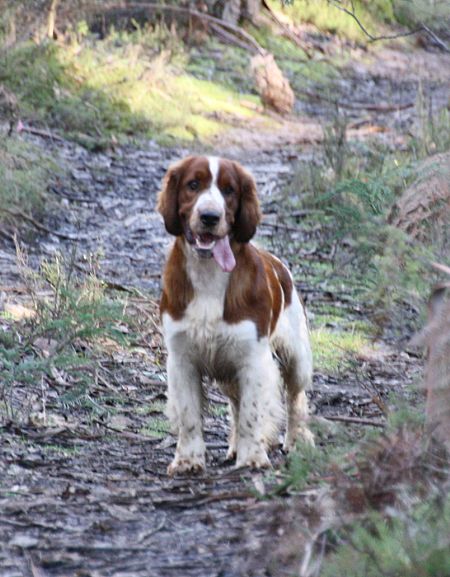 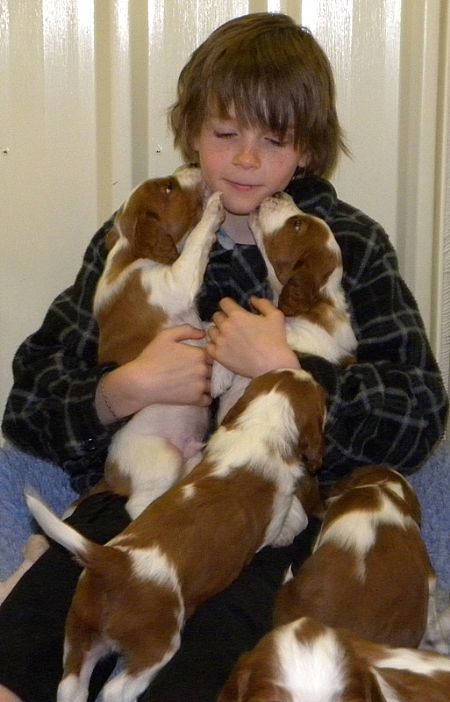 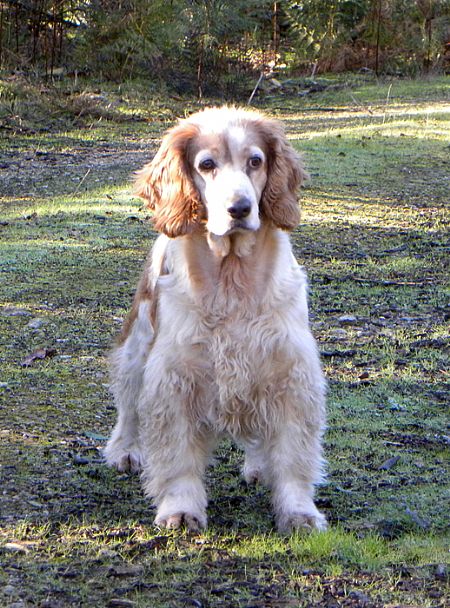
|
|
Fencing?
Generally any pup that is securely contained when young doesn't think to go out as an adult, and a 4-6 foot fence is sufficient. Welshies follow their noses, so if they can get their head through a gap then surely the body will follow, so particurlar attention needs to be given to the lower areas. As we have a number of dogs and live in an area with plenty of stock, wild life and exciting smells, and wombats that bulldoze holes through the strongest mesh, we have had to install an electric fence a foot from the base of our boundary fence, which is an excellent deterent for avid hunters.
Digging, chewing, biting & barking?
Unfortunately these are things which are part and parcel of all dogs, and puppies do them as part of their learning experience much the same as learning to walk and run. It makes life easier if young pups are provided with their own area when left alone, plenty of chew toys, perhaps a sand pit or an area that you don't mind them digging. Adult dogs that spend time outside love to have their own favourite hole to dig, re-arrange and lie in. Boredom and loneliness will sometimes produce problem barkers. Because dogs are pack animals, they do benefit from the company of another canine, especially when they are left alone for most of the day.
What is hip-scoring?
Hipscoring is done to assess for hip dysplasia. The dog is anaethetised, the hind legs are spread out and then x-rayed, and the distances between the hip socket and ball of the femur are measured and scored. In Australia they can have a possible score of 0 - 106, the lower the score the better. For anyone interested in more details there is an excellent website on this subject listed on our LINKS page.
Although genetics play a part in problems of the joints, diet, environment and correct exercise are also a factor. Pups should not be given strenuous exercise before their bodies are fully matured, running up and down stairs, jumping on and off couches and beds, early desexing before they are completely mature, thus removing the growth hormones, can be very detrimental to developing joints. Too much weight also adds stress to the joints.
For detailed information on hip dysplasia, it is worth reading the information (simply explained), given on The Institute of Canine Biology, link on the 'Links' page.
|
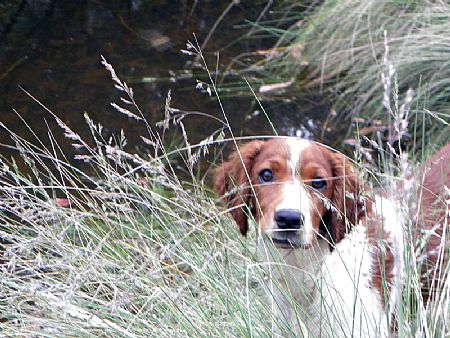 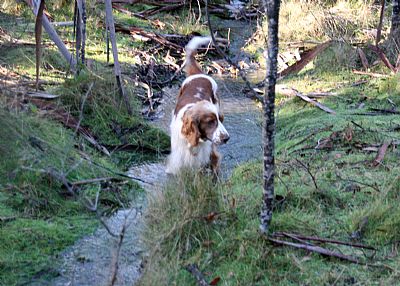 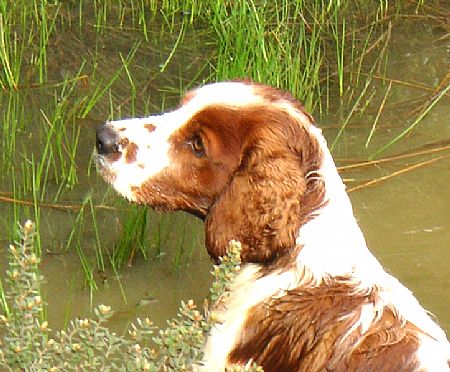
|
|
Our Policy
When selling puppies or a mature dog we attempt to match them with a compatible owner, mostly with success. On occasions when an issue arises big or small, please contact us. We will do our best to suggest a solution, or in extreme cases when it is necessary to return a pup or organise re-homing, we will do our best to assist. We like to hear about their health and how they are settling in, it is always lovely to receive updates and photos.
|
|
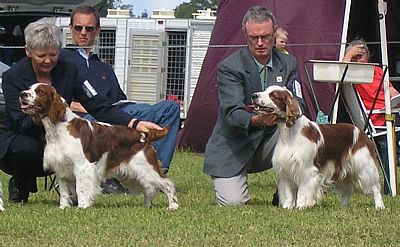 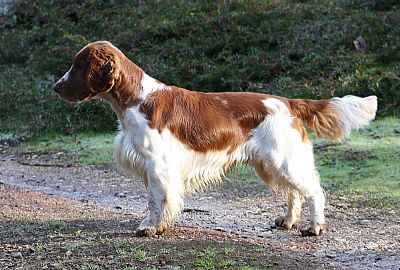 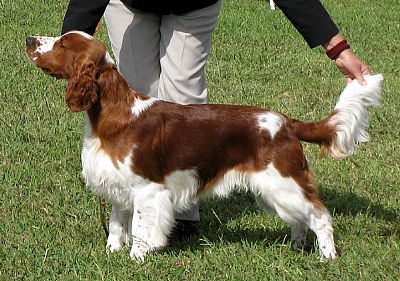
|
|
|